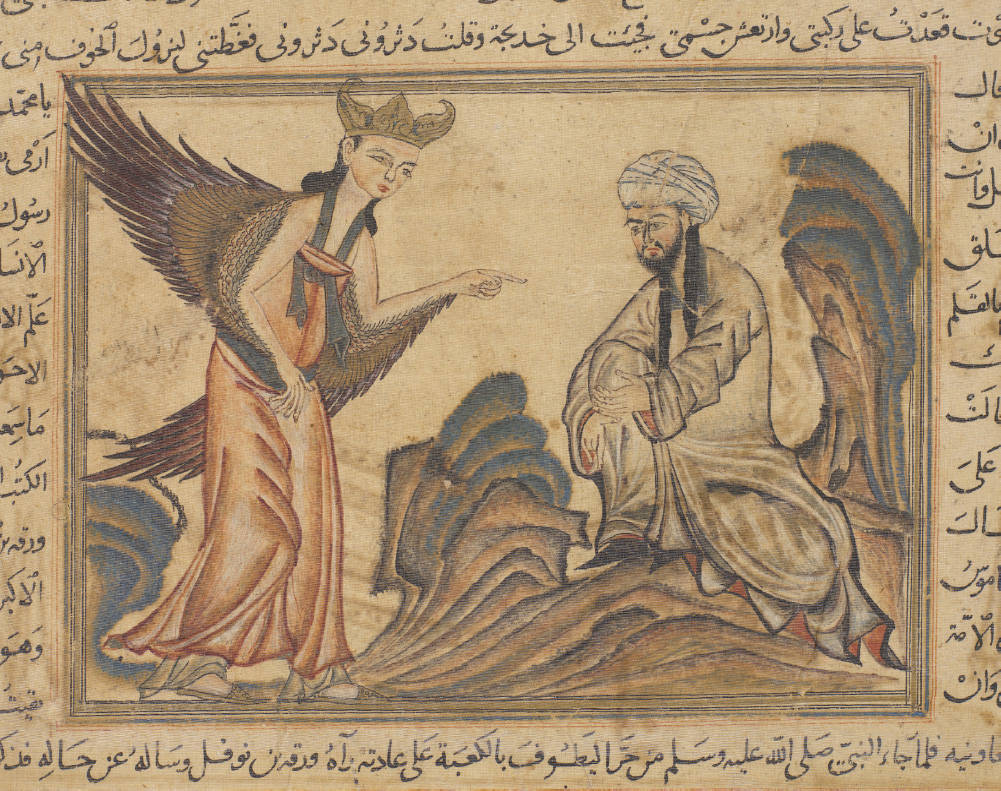Visual Source 9.1
Muhammad and the Archangel Gabriel
According to all Muslims, the central and defining experience in Muhammad’s life occurred in the year 610 C.E. in his initial encounter with an angel, usually identified as Gabriel, an event that marked the beginning of his revelations.40 For some time before this dramatic event, Muhammad had been in the habit of withdrawing to a cave outside Mecca for prayer and meditation. On this occasion, however, a towering and overpowering presence of the angel appeared to him, filling the entire horizon, squeezing the very breath from his body, and commanding him to “recite” or to “read.” After repeated protests that “I am not a reciter/reader,” Muhammad found himself speaking what became the first revelation of the Quran.
When the vision passed, Muhammad fled in terror to his wife Khadija, fearing that he might be mad or possessed of some demonic spirit. Seeking to comfort him, Khadija took her husband to her learned cousin Waraqa, a Christian, who assured Muhammad that “he is the prophet of his people” and the recipient of revelation from the same God who had earlier granted similar messages to Abraham, Moses, and Jesus, among others. Further revelations followed over the next twenty-two years until Muhammad’s death in 632, after which they were compiled into the Quran.
Visual Source 9.1, an early fourteenth-century Persian miniature painting, depicts this encounter between Muhammad and Gabriel.

Question
What impression of this encounter does the artist seek to convey by the posture of the two figures?
Question
What religious meaning might Muslims derive from the idea that the revelation to Muhammad came through an angelic messenger rather than directly from Allah?
Question
Traditional accounts of Muhammad’s encounter with the angel stress the mysterious and overpowering “otherness” of the Divine Presence, which accounts for Muhammad’s initial fear and terror. What is the religious significance of such a depiction of the Divine? To what extent does this image convey that impression?
Question
Muslims have traditionally stressed that their prophet was illiterate, based in part on his response to the angel: “I am not a reader.” Why might it be important to Muslims to believe that Muhammad was illiterate?